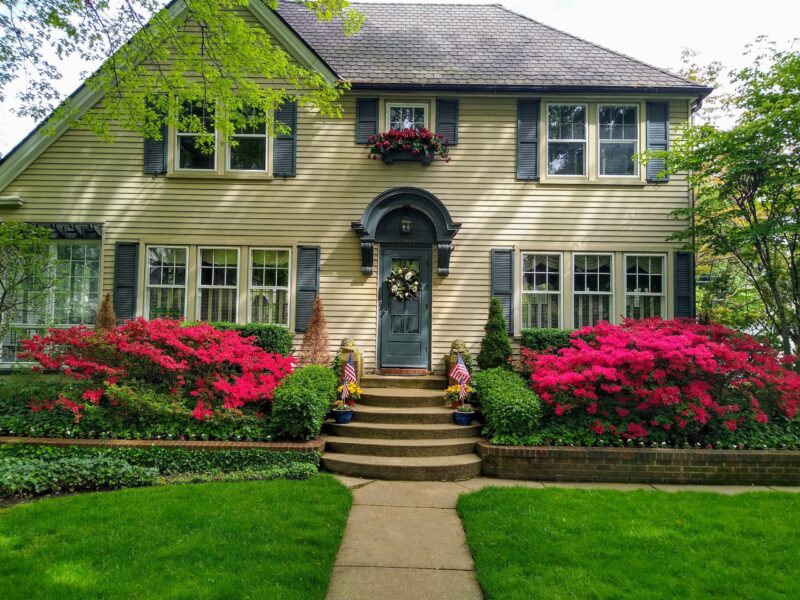Costs When Buying a House 
Preparing to buy a property can be a daunting task, but it’s not just the cost of the property or a mortgage that buyers need to consider. Here’s a rundown of all the costs when buying a house.
Home Emergency Insurance for £130
- ✓ Covered up to £1,000 per emergency
- ✓ £250 for overnight accomodation
- ✓ Call out, labour & parts included
There are a number of additional costs involved in the moving process and budgeting for these is vital for a stress free moving process. If you’re wondering what costs are involved in buying a home, we’ve put together a check list of things to remember.
Property and Mortgage Prices
It is rare that when buying a property you will have the full sum saved prior to the sale. But you will need to have saved something in order to get a mortgage and the more you have saved the better the mortgages on offer will be.
The deposit required is usually a minimum of 5% of the cost of the property you are looking to buy however by increasing this to 15% of the property price you will get a much better deal.
So on the average UK property of around £177,000 that’s £8,850 or £26,550 for a 15% deposit just to get started. Setting up this mortgage may also incur costs with some lenders charging you a booking fee of anywhere from £100 to £250. Although this is often refundable if your application is unsuccessful its worth checking this before you hand over your cash.
Depending on the amount borrowed and the percentage provided within the deposit you may be liable for paying a This is essentially a charge for your lender to take out insurance in case you cannot cover the repayment costs and they have to sell your house at a loss. However even in this event the lender can still chase you for the money lost. A higher lending charge is usually around 1.5% on the amount borrowed.
Another potential upfront cost to consider when organising your mortgage is the arrangement fee. Not all products will incur this fee but can be charged on top of the booking fee. This can cost you in excess of £2,000 but can be added to your mortgage amount, however doing so can incur interest and increases the costs involved throughout the duration of your mortgage.

The House Valuation
When lending you the money to buy a mortgage lender will want to know you have the collateral within your new property to cover this. Therefore they will undertake a valuation survey of the property to ascertain the amount you are eligible to apply for.
Again these vary in cost depending on how extensive your survey is, a straightforward valuation which is adequate in satisfying a lender that the property exists starts at around £150. However these can range up to £1,500 for a home buyer report for which you will have a professional assessor visit the property in question and carry out a structural survey and a far more in depth assessment. But make sure you shop around, some lenders will include a valuation as part of the service and although a small additional cost, every penny counts when budgeting to buy a house.
Account Fees
Again have a look around and see what’s available on the market. Usually a one of fee when taking out a mortgage it covers the costs of running your mortgage account from the set up to its closure. Paying an upfront account fee more often than not means you won’t have to pay an admin fee when repaying it.
The likely hood is that the lender won’t charge you an account fee but will cover this in the form of an exit fee. This will be charged in the event you leave your lender prior to the end of the arranged mortgage whether it be to re-mortgage, sell the property or get another mortgage for a new property. If you do have to pay an account fee it will set you back between £100 and £300.
Solicitor Fees
Having a good solicitor can be a massive help when buying a house but the legal work involved means incurring costs in around £750 plus VAT. One thing they will usually organise is the relevant checks with the council. This includes a search of any planning and local issues that may affect the property as well as a search of the drains and if done separately usually cost £300.
Stamp Duty
Stamp Duty Tax is one of the more substantial costs involved in buying a house, however a recent government reform means that 98% of those buying a home are better off. Prior to the changes Stamp Duty was calculated on a slab style format charging you one percentage on the price of your house. The change to a sliding scale means that you pay a smaller percentage between each bracket and this percentage increases as you move through the brackets.
So to put it into context before the change a house purchased at £260,000 incurred a 3% tax of £7,800. But the new changes mean that now a house purchased at £260,000 will only incur a charge of £2,999. No tax for the first £125,000, £2,499 for the 2% between £125,001 to £250,000 and £500 for the 5% between £250,001 to £260,000.
Surveys
As for mentioned by having a home buyers report conducted at the same time as your valuation you can save on costs. However this is just one of three types of survey that should be carried out when buying a property the other two are:
• A structural survey, this is the most expensive type of survey costing in the region of £600 and as a result is often overlooked by buyers. This can be a costly mistake in the long run as a structural survey will uncover any potentially serious problems with a property. It is highly recommended that a structural survey is undertaken for older or non-standard properties as these are most at risk. Not only can a structural survey flag up any potential disasters while their still relatively inexpensive to fix, but these potential issues can provide a good bargaining point when negotiating price with the seller and save you money in the long run.
• If you don’t want to fork out for a structural survey you can always opt for a home condition survey.. The most basic and as a result the cheapest, typically £250-£300, it can be sufficient for more conventional or newly built properties.
However these surveys won’t account for everything and often the most truthful representation of your property and the land it sits on is through a conveyancer’s survey. This will flag things that your estate agent or surveyor wont such as:
• Local authority searches: is there a new transport development planned through your back garden or is there any environmental dangers such as power stations or mobile phone masts nearby.
• Checking the risk of flooding: Again something that is often overlooked but as many across the Britain have experienced increasingly in the past few years, something that is a very real danger and can ruin your property and life.
• A Chancel Repair Search: This accounts for any medieval leftovers on your land that the church could come asking for.
• An Environmental Search: Conducted by the Environmental Agency this can reveal things such as is your house sitting on a former landfill site.
• Finally any location specific searches: This could be Radon gas in Somerset, mining in Warwickshire, Tin in Cornwall or more recently the practice of Fracking in some parts of the UK.

Cornwall or more recently the practice of Fracking in some parts of the UK.
If you’re thinking of buying a property in Scotland be aware you will have to pay a Registration of Title, the cost of this is dependent on the value of your property. The registry of the 33 counties that make up Scotland is designed to show you who owns what and Scotland made the full switch to the Land Registry from the Registry of Sasines in 2003.
Telegraphic Transfer Fee
A fee incurred by the lender when transferring the mortgage funds to the seller’s solicitors. This should only set you back around£50.
Building Insurance Fee
Building insurance is just another cost that is part and parcel of buying a house, but should the worst case scenario happen where by your property suffers serious damage it will save you money. Like with any insurance there is a wealth of companies on the market offering cover so have a look at who can offer you the best deal. This said always read the small print when entering into a mortgage agreement as many lenders implement hidden clauses that charge you if you choose to take out cover through an alternative company. Although only £20 to £30 it can make all the difference when added to the already growing list of charges.
Moving
The final cost to consider when moving house is the cost of moving itself. This can be anything from the price of a removal firm, use of a storage facility, using a professional packing service and even down to the petrol it costs to drive to your new home.
Take a look at our buyers guide to moving day for a detailed guide on the costs involved in moving house and where you can save some pennies. Although you might not incur all the charges detailed above, budgeting appropriately can make or break your sale. With the high demand and speed at which the UK property market is moving the last thing you want is to miss out on a property because you have failed to budget properly. Although it can be tempting to lump all your savings into a mortgage deposit to secure a better deal, leaving the bank broken can result in you tripping yourself up with smaller fees later in the process.